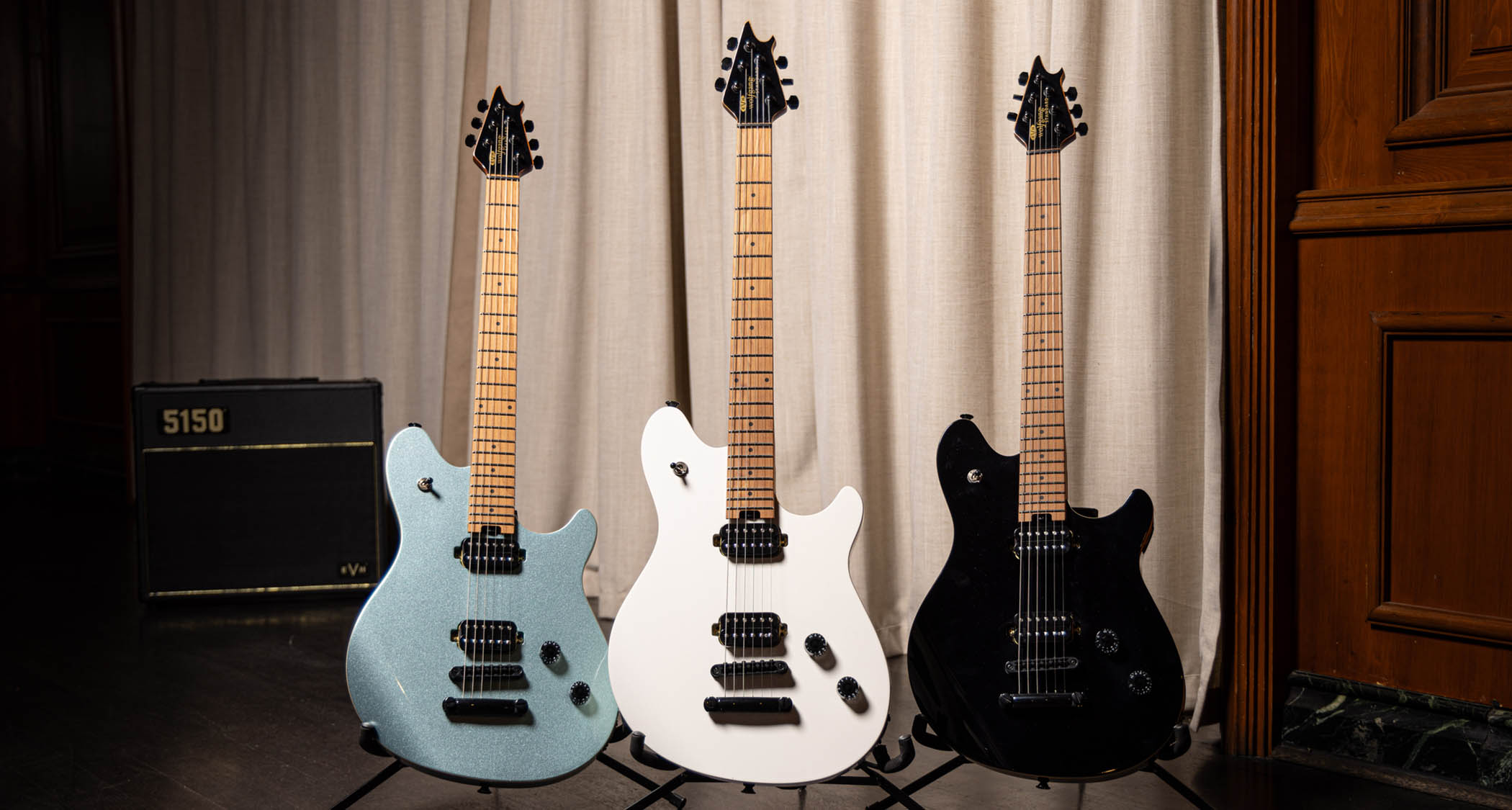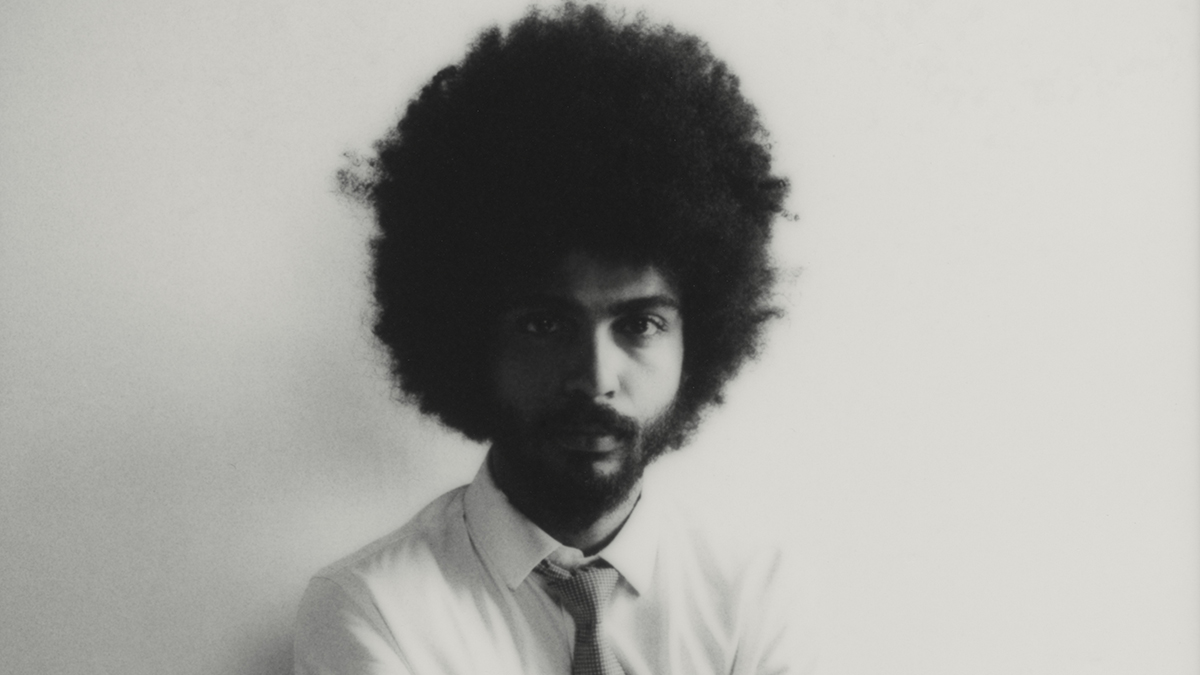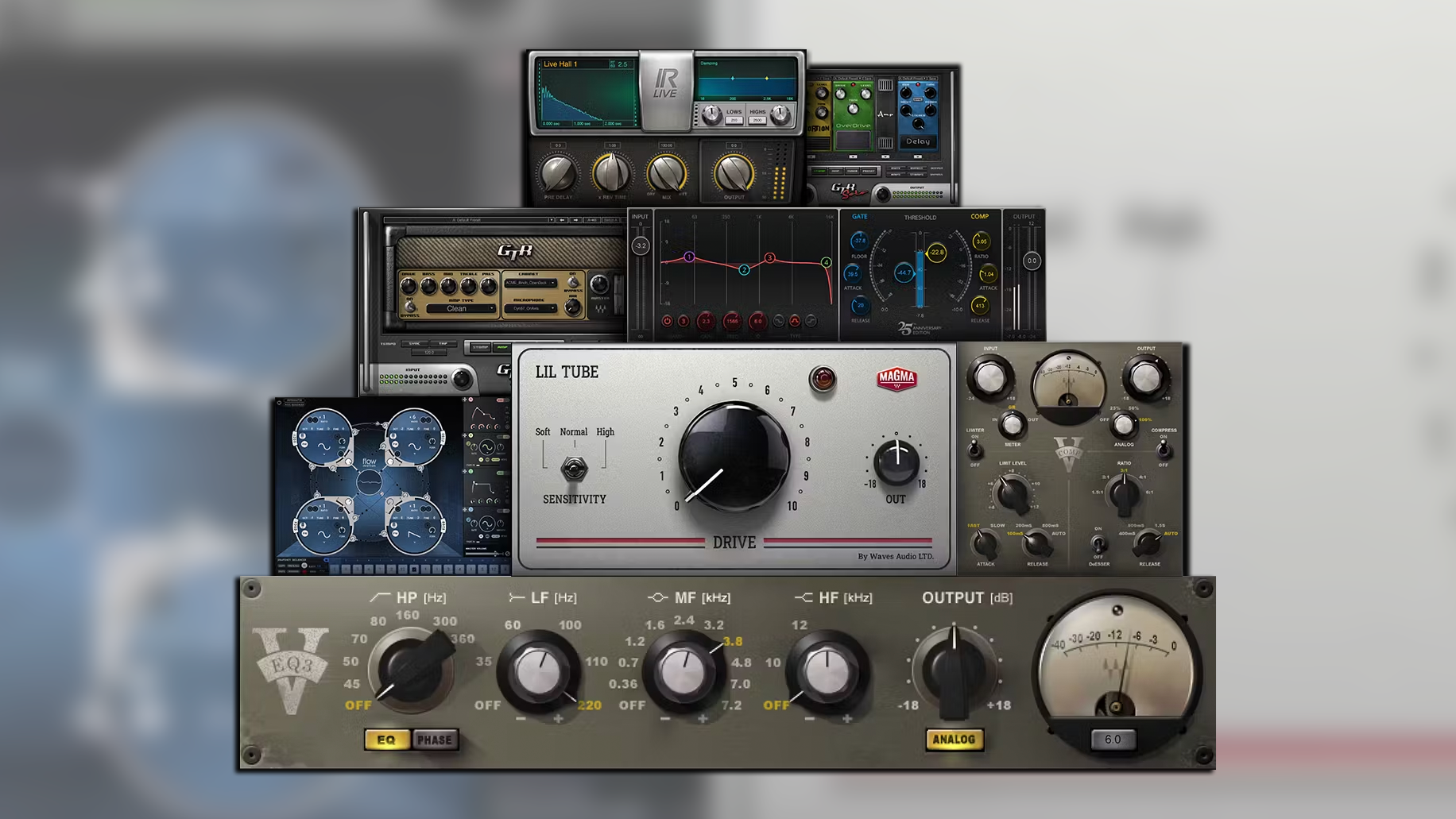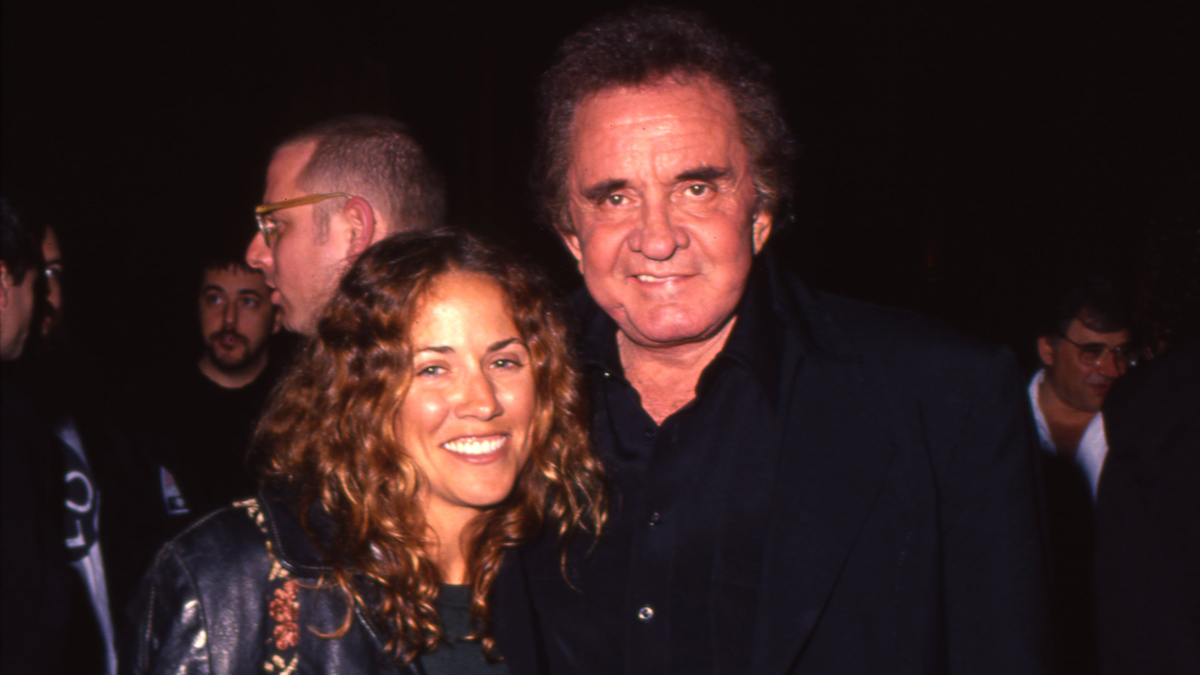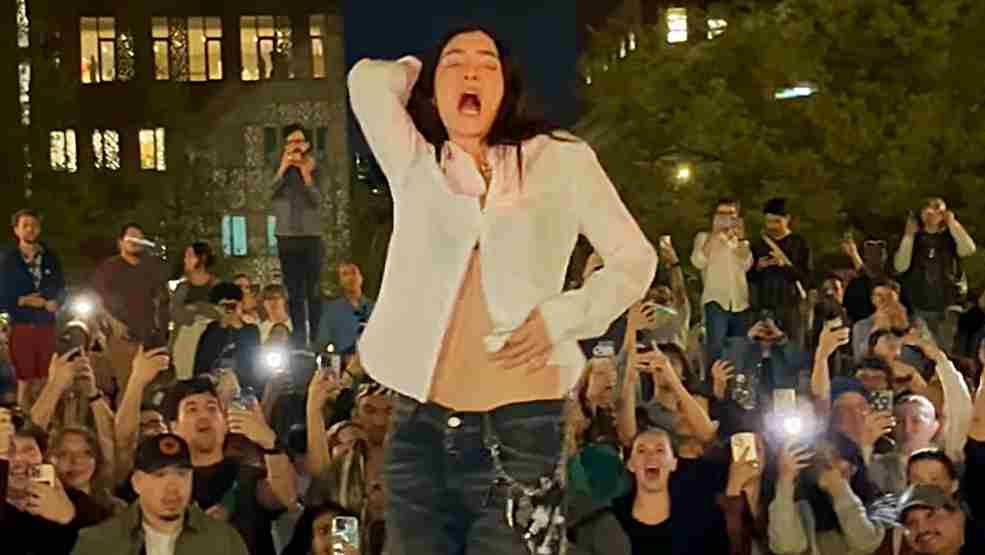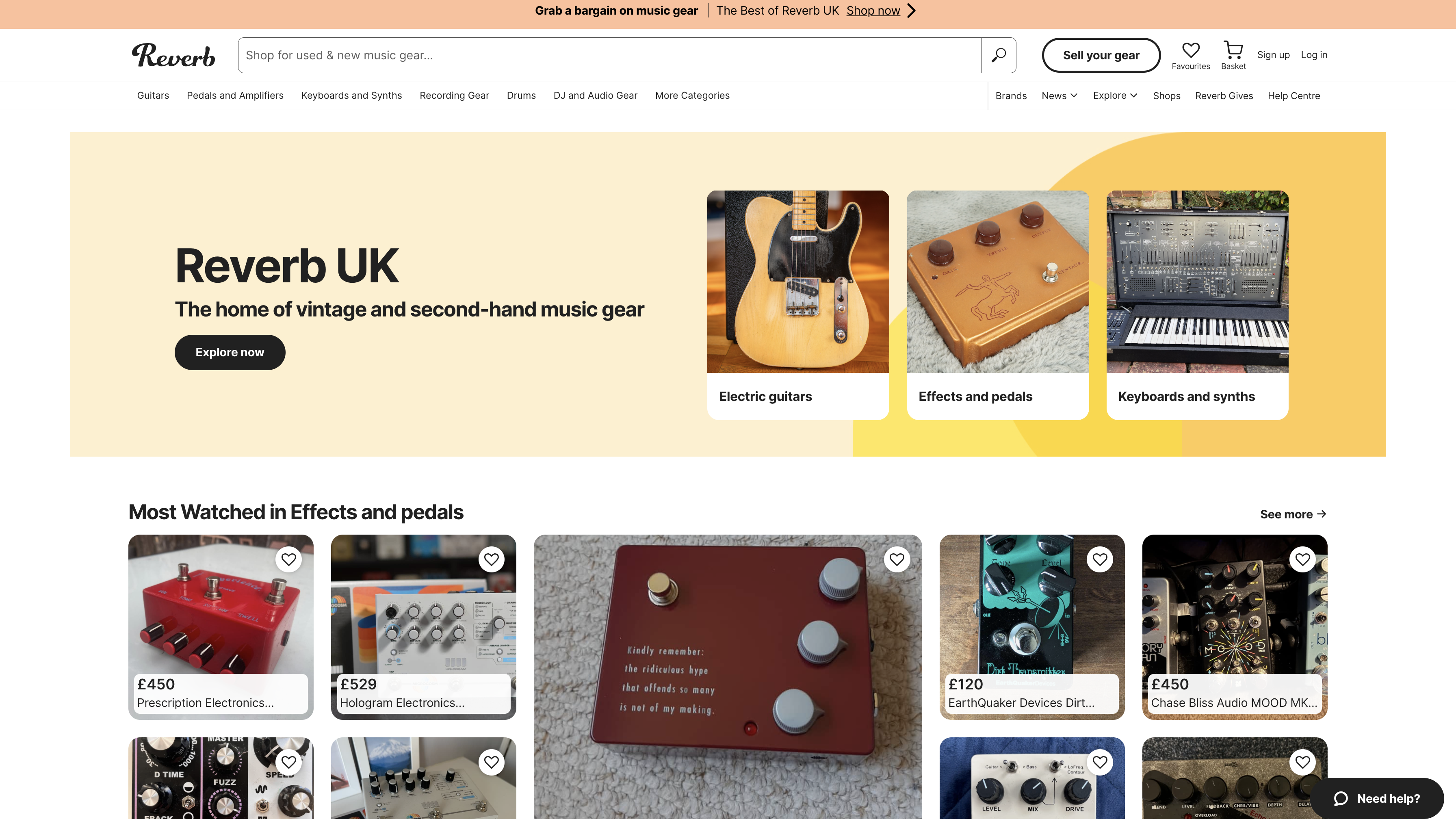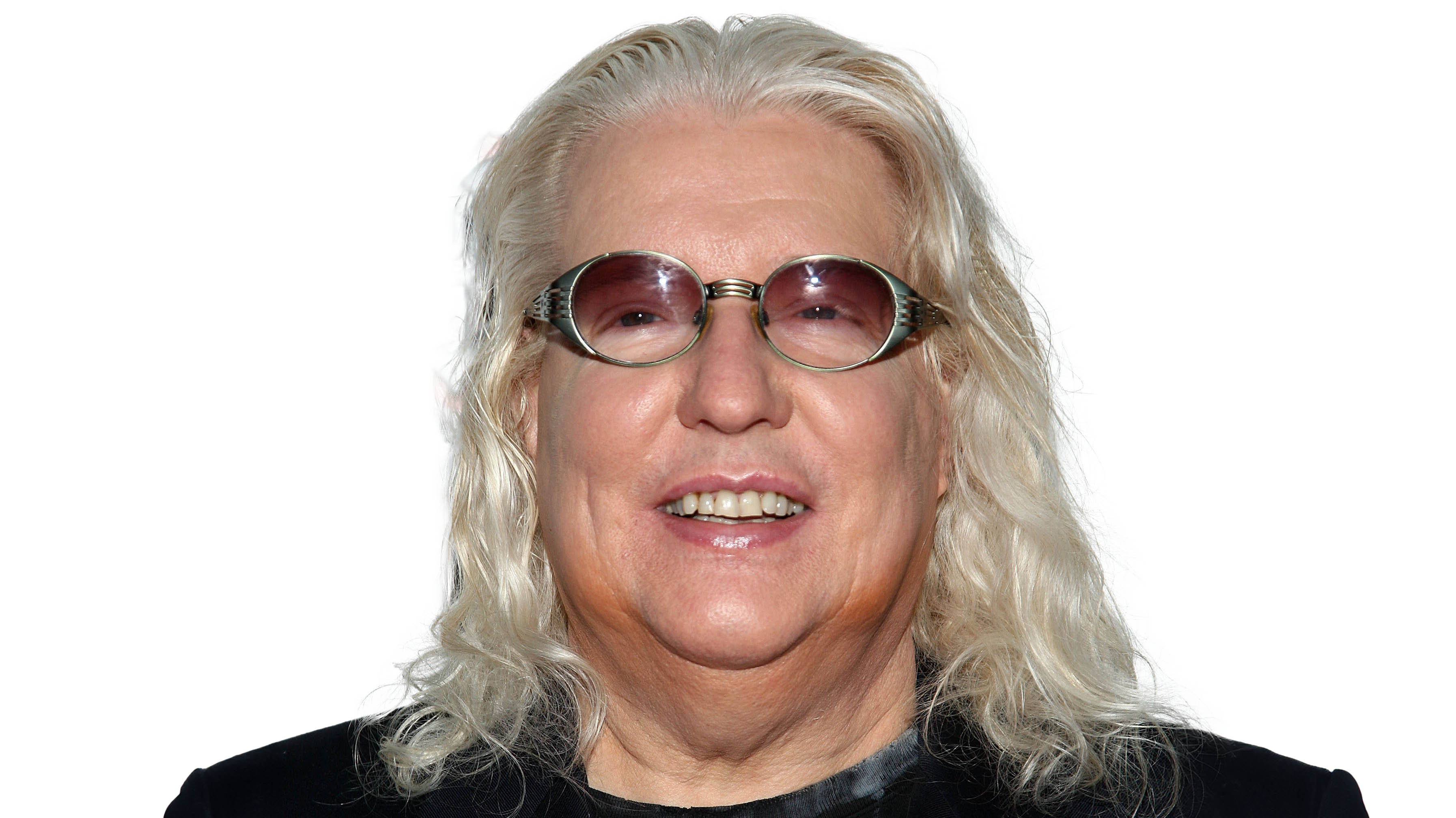Richard Kruspe on Lemmy, Manson and 'mic madness'
The Rammstein man talks studio OCD
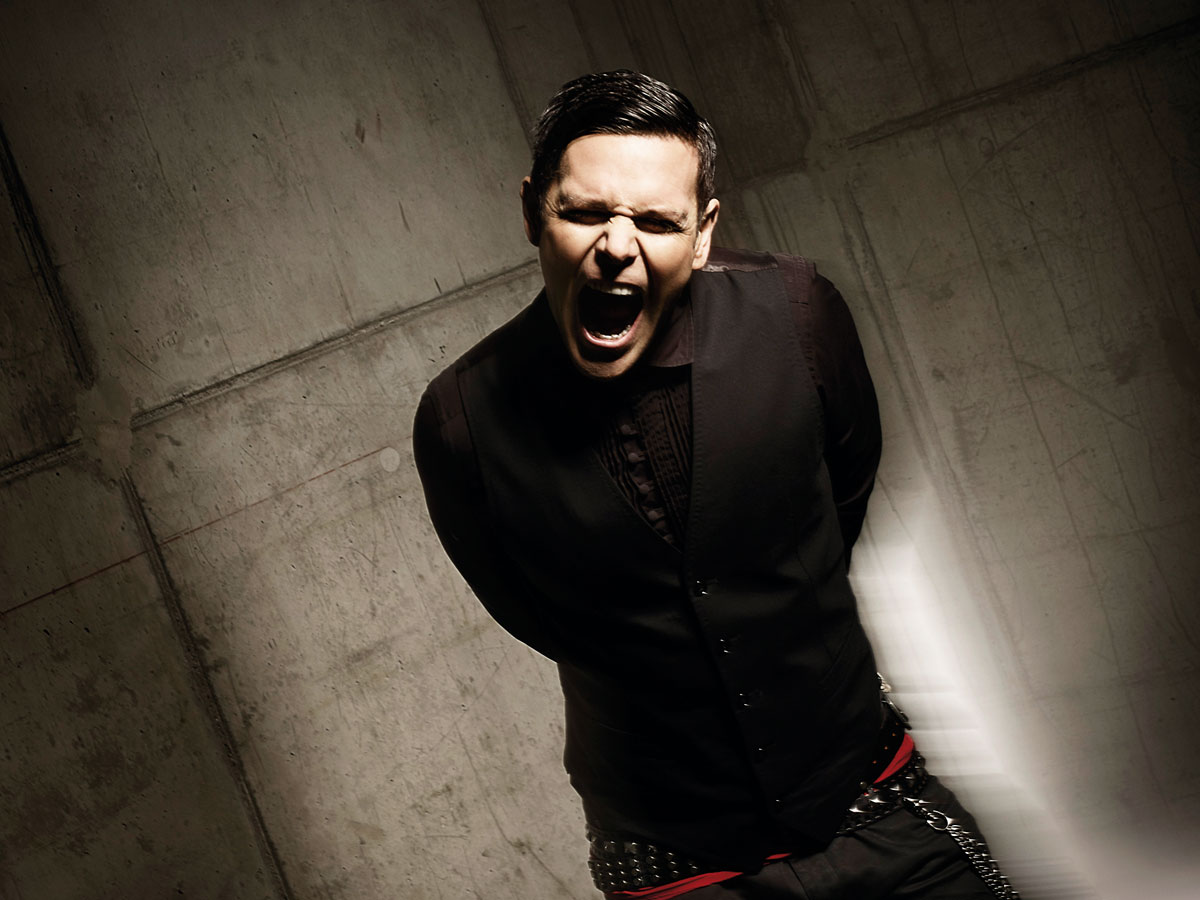
Introduction
How OCD, leadership and Berlin helped Richard Zven Kruspe survive Rammstein and find peace with 'second' band Emigrate's new album...
"Emigrate was born out of frustration in the world of Rammstein"
Nobody ever said being in one of the world’s biggest metal bands would be easy. Back in the mid-2000s, Rammstein’s lead guitarist and co-founder Richard Z Kruspe was becoming agitated at being a principle cog in the Germans’ titanic shock theatre, and was seeking ways to free up his artistic muscle.
So he formed a second band - Emigrate - in New York, enabling him to find what he describes as “crucial balance” with the claustrophobic, six-man democracy of his gruelling but massively rewarding day job.
How important for you is it that Emigrate are recognised as a standalone band and not a solo project?
“Emigrate was born out of frustration in the world of Rammstein. Rammstein exists in a really closed environment and is a democracy - everyone has an equal say - but I had become frustrated by that.
"The idea of Emigrate was to be the opposite: have an open source and collaborate with as many people as possible. There are so many great musicians, it’s a shame to be restricted to a single story. I don’t believe in monogamy. I realise I’m a better team player when I have the final say.
"In Rammstein we could sit for eight fucking hours and discuss whether we wanted to play a break or not, and sometimes it was a waste of time. Even though I understood the bigger picture and how it was important for Rammstein - and I made my peace with it - I needed Emigrate to survive. I couldn’t only be in Rammstein. Emigrate is my way of finding balance.”
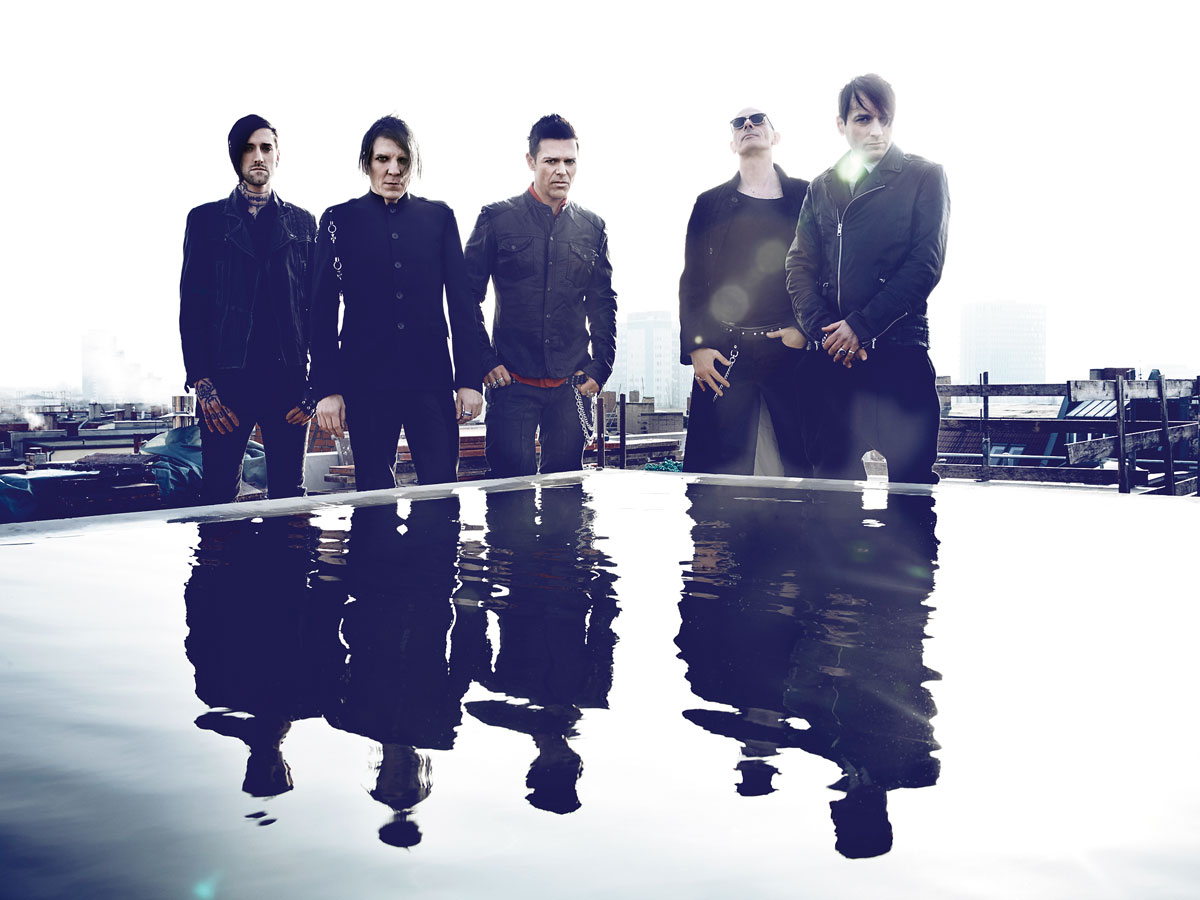
Songwriting subtleties
How does your songwriting process differ between Rammstein and Emigrate?
"Music leads you somewhere and all you can do is follow"
“When I write for Rammstein, there’s a need to fill my riffs out with melody because Till [Lindemann]’s voice has such a low frequency. In Emigrate, I’m using my own imagination and thinking about what I can sing, so there is less focus on guitar melodies.
"Till also requires musical guidance because he’s so enslaved to the music; he writes based on a song’s mood. When I write for Emigrate, the first words out of my mouth lead me to a chorus, a story or an idea. It’s impulsive.
"Neither method is easier, just different. But right now, I’m so used to the Emigrate way that returning to the Rammstein world and writing seems hard...”
Has assuming lead vocalist duties been a burden or a release?
“It was the biggest problem. I’m so advanced in my guitar playing and writing that I knew what to do, but as a singer I’m just a baby. I had to lower my expectations right down because everything was sounding horrible.
"There were many times when I nearly gave up and accepted that [me singing] was not meant to be. But Arnaud [Giroux - bassist] held me together, and insisted that I was only the guy who could sing these songs."
How much has being entrenched in Berlin impacted the album?
“Berlin has been a bigger influence than any artist on this record. When I was listening back to the first record [which was recorded between Berlin and New York, where Richard was living at the time] I was surprised, it sounded just, well, rock. I expected it to be darker. I don’t even like rock!
"But music leads you somewhere and all you can do is follow. I was trying to fight that on the first record but I couldn’t, musically, it was really rocky and symbolised New York in a way. Whereas Berlin, for me, is a much darker, more destructive place, with a more electronic background. And I can hear that in this record.”
It’s said that you didn’t write these songs with any specific collaborations in mind. At what point of the process did you decide who to approach?
“We just wrote the songs, and some songs called immediately for certain people. Other songs were changed while we were playing them.
"Rock City, for example, was originally this little pop song that I had no idea what to do with. Then the drummer doubled the tempo and created this driving mix that fell somewhere between Motörhead and Depeche Mode. And I was like, ‘this is obvious, we should ask Lemmy to do a vocal!’
"The music is the leader; it tells you where to go, you just have to let go and listen to it. That’s what I like about Emigrate, we had the freedom to ask these people.
“The music industry has changed so much that musicians are more open to collaborate. 10 years ago, you’d need to sign a 50-page contract to collaborate with someone.”
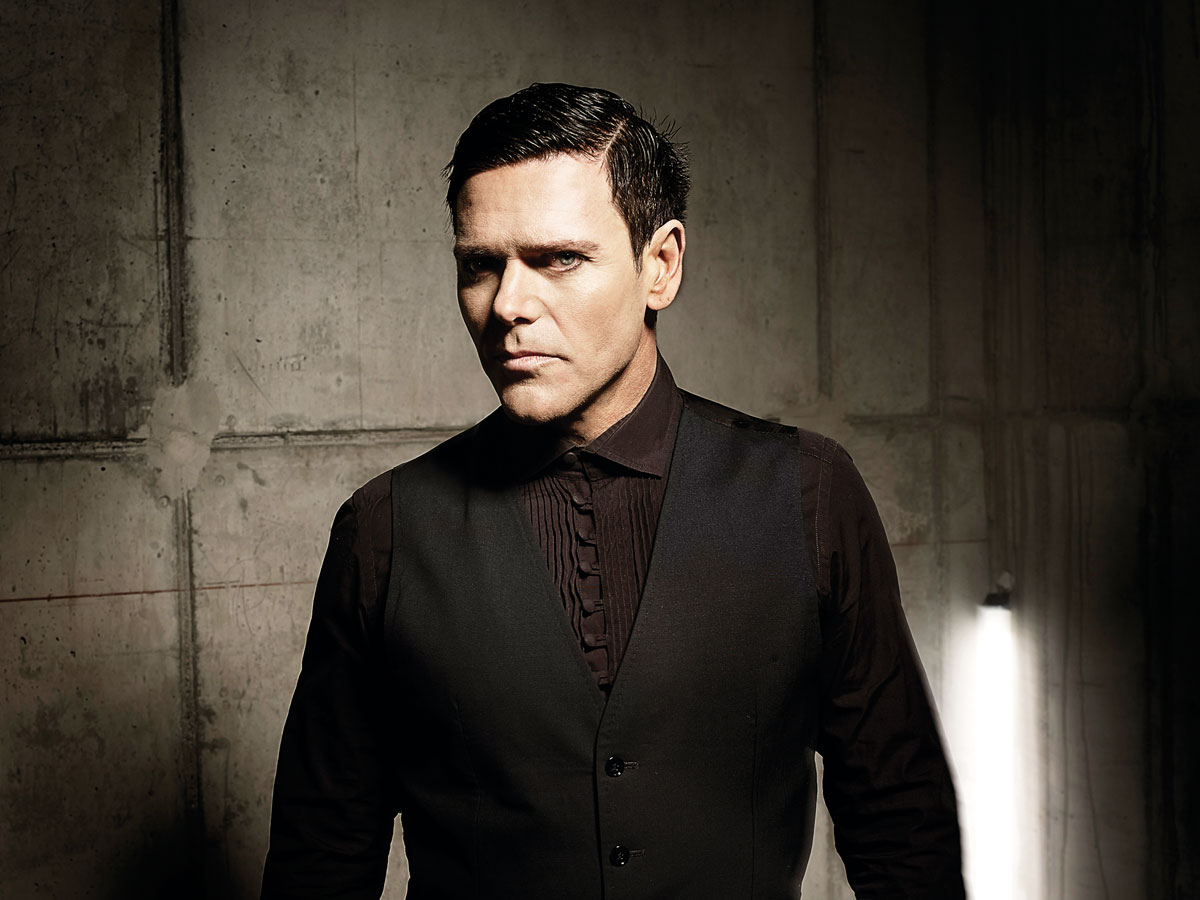
Collaboration
Were you friends with any of your collaborators beforehand?
"Manson is obsessed with cats - he was playing with his cat for four hours!"
“Peaches [who features on Get Down], I wasn’t so familiar with, I knew her name, but she was Arnaud’s choice because the track she appears on, Get Down, had an electronic vibe, which he felt her voice was perfect for.
"Lemmy, I would never have guessed he would agree to star because last time I saw him he was standing at the side of the stage watching a Rammstein show, and I was freaking out and I threw my guitar at his head. He disappeared right after that! But maybe that incident made an impression on him, I don’t know.
"Jonathan Davis, we knew from the Family Values tour [in 1998]. And Marilyn Manson, I knew from performing [Beautiful People] together at the Echo Awards in Berlin [in 2012]. We felt a really strong connection somehow. I wasn’t a fan of his music but he’s definitely a fucking... personality! Haha. I’ve never met anyone with such a huge aura. It’s unbelievable.”
Were you at everyone’s recording sessions?
“It was a mix. Lemmy recorded his parts in LA. Manson did one session in a studio, but it wasn’t what I was looking for. So I asked a friend of mine, a programmer in the Rammstein family who has a small studio in LA, whether Manson could record there.
"Getting Manson into a private, family environment is the only way to get something out of him. My friend has a baby and a cat, and Manson is obsessed with cats - he was playing with his cat for four hours!
“Nailing down Jonathan [for the title song] was a huge challenge. I asked him two years earlier if he wanted to contribute, but when it came to recording, he was impossible to get hold of because he doesn’t have a cellphone or email. So I was reaching out through his manager and personal manager.
"In the end, I was singing the song myself because Jonathan was never going to happen, then all of a sudden, I was mixing the song in LA and I got an email from Jonathan saying, ‘I’m in a studio right now!’ So I was like ‘um, okay, can I call you?’ ‘No, I don’t have a phone!’
"So we were writing emails backwards and forwards, and two hours later, Jonathan emails me these vocals he’s just done. There was a part in the chorus where he needed to sing higher, so I asked him if he could, and he said ‘no’. So I was like [raises voice] ‘fuck man, take your fucking hands, grab your balls and then sing high!’
"Jonathan came back an hour later with this perfect vocal and perfect pitch. Did he really sing while grabbing his balls? We have no hardcore evidence, but I guess!”
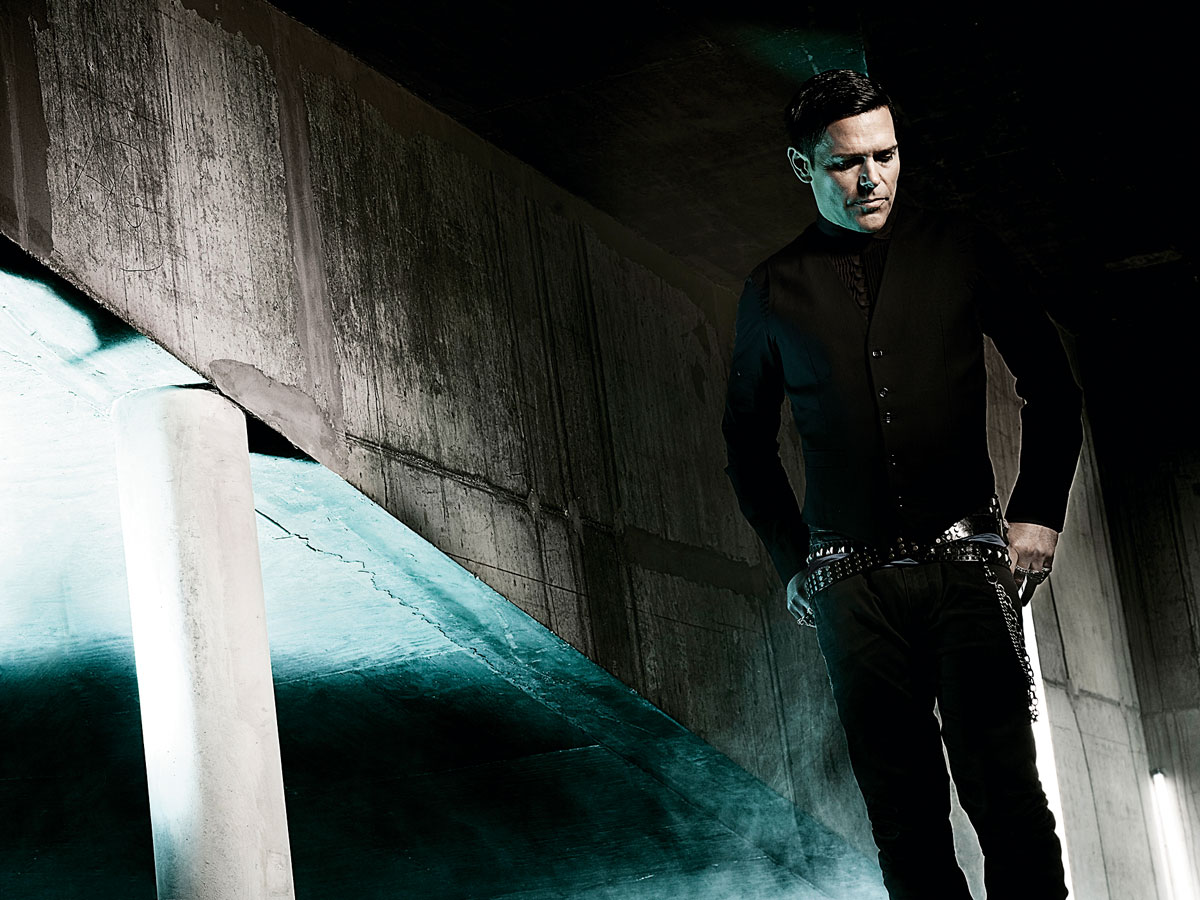
O.C.D. on the M-I-C
You’re still getting chunky, industrialised guitar tones in Emigrate. Is your rig very different from Rammstein?
“Not really. The only difference was that I used different mics for recording. In Rammstein, I mainly use the Neumann M149. This time I used the Telefunken U47 with the M149. The M149 is brighter and the U47 has a little more lowness. They complement each other well. But my problem, especially in Emigrate, is I can’t stop. I recorded every song five times with a different setup.
"I vanished so deep into mic positioning that I had to close the studio and give my engineer the key!"
“I created a mic robot because I was going nuts getting up and down changing the mic position, that I was never getting anything down on tape! I’m a nerd when it comes to guitar recording. After a while, people were asking, ‘what the hell are you doing? Can you hear any difference?’ And I couldn’t!
"I vanished so deep into mic positioning that I had to close the studio, give my engineer the key and plead, ‘please do not give me the key again!’ I could’ve gone on my whole life chasing something that I don’t even know is there.”
Isn’t that obsessive compulsive disorder?
“That’s what my girlfriend says! Haha! I can’t fucking stop. Even in the car, if something is broken, I have to stop and fix it. It’s a sickness.”
What about the guitars you use in Emigrate?
“I still use all my signature models. I have one favourite guitar - the ESP RZK-1 - that I use mostly. Then I have an old ESP Tele-style, which I used a couple of times. It’s the same with amps, I tried a lot of stuff but I always went back to the ones I use for Rammstein too, like the [Mesa/Boogie] Dual Rectifier.”
Do you have any new signature guitars in the pipeline?
“I already have the RZK-1 and RZK-2, which is a Les Paul kinda thing, but we’re thinking of doing something new but I haven’t had time to come up with the concept yet. That will be the RZK-3.”
And any news about Rammstein? It’s been five years since Liebe Ist Für Alle Da. Is there a new album mooted for 2015?
“No, I don’t think so. We met up two months ago and we said we’d meet up again next year and see how everyone feels.
"I was talking with one of the guys yesterday, and he said ‘I really like this position we’re in at the moment, we’re probably the only band right now who can still headline certain festivals without releasing a new album.’
"We don’t need to do a record every year; if you don’t have the vision, you shouldn’t do it. Why should we? Just to make money? Music is all about inspiration.”
“It’s honestly got me thinking hard about adding one to my own studio set up”: Two Notes Reload II review
“Gloriously adorned with a gold edge burst finish over a gold paisley and sparkle top”: Gretsch unveils the Paisley Penguin – a rare bird that growls – and the Honey Dipper Special, a resonator for all your roots rock manoeuvres
“It’s honestly got me thinking hard about adding one to my own studio set up”: Two Notes Reload II review
“Gloriously adorned with a gold edge burst finish over a gold paisley and sparkle top”: Gretsch unveils the Paisley Penguin – a rare bird that growls – and the Honey Dipper Special, a resonator for all your roots rock manoeuvres


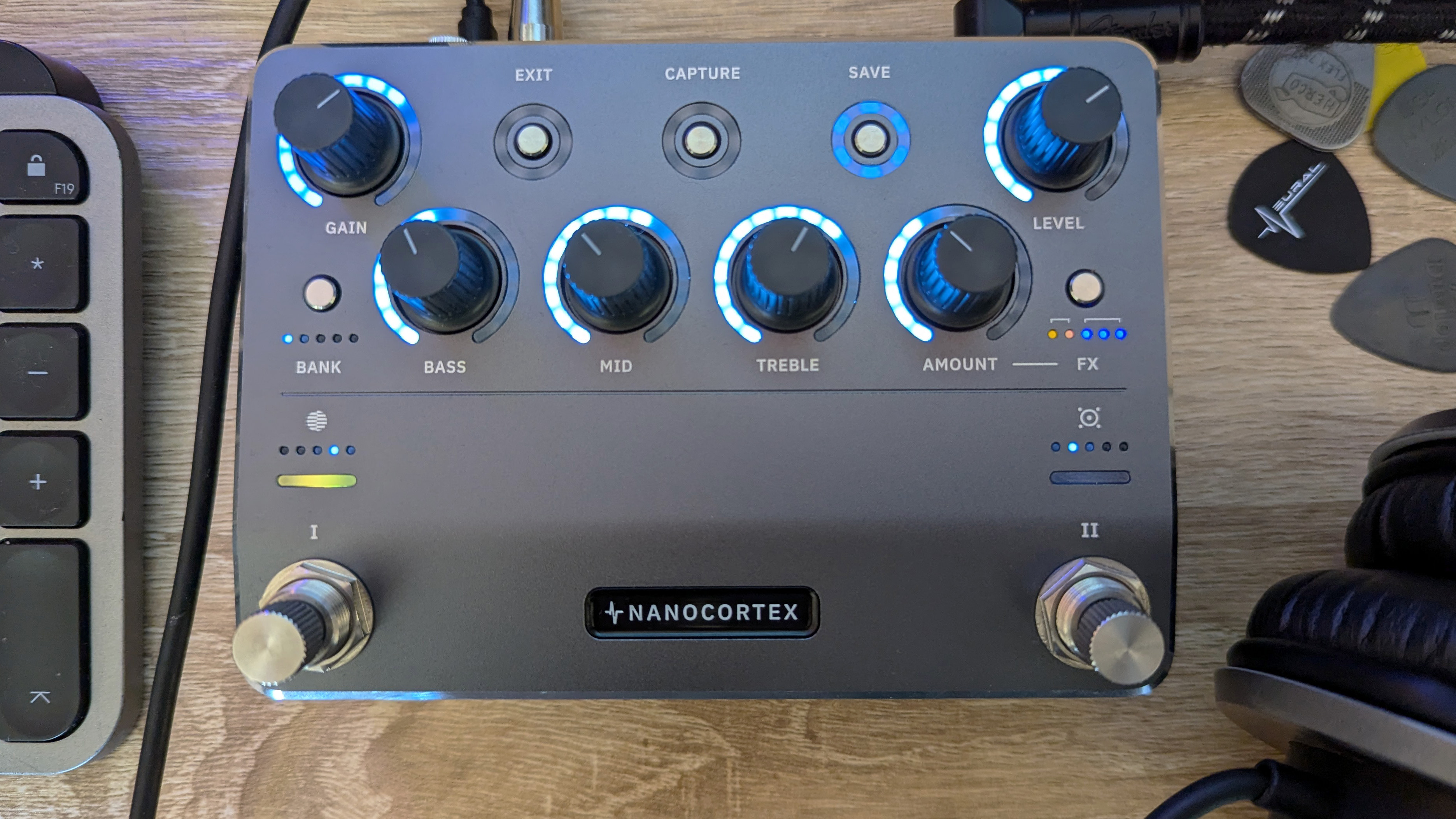
![Gretsch Limited Edition Paisley Penguin [left] and Honey Dipper Resonator: the Penguin dresses the famous singlecut in gold sparkle with a Paisley Pattern graphic, while the 99 per cent aluminium Honey Dipper makes a welcome return to the lineup.](https://cdn.mos.cms.futurecdn.net/BgZycMYFMAgTErT4DdsgbG.jpg)
